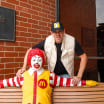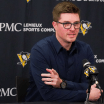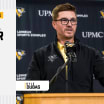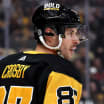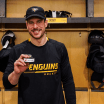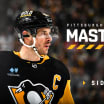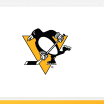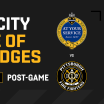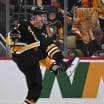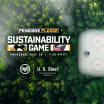Last season, Scott Young would take a break from his role as an assistant coach at Boston University and drive 30 minutes to Cushing Academy to watch his son Tyler, who played for the school's hockey team.
A lot of times, Young would run into former Penguins teammate Mark Recchi, whose son Cameron was also on the team. Young and Recchi ended up spending a fair amount of time with each other throughout the year, at both Cushing Academy and BU, as Young took Recchi's daughter for a tour when she came to the campus for a college visit.
That constant contact with Recchi helped Young land his new position as the Penguins' director of player development. And he couldn't be more thrilled to rejoin the organization he won the Stanley Cup with as a player in 1991.
Young looking forward to new role with Pens
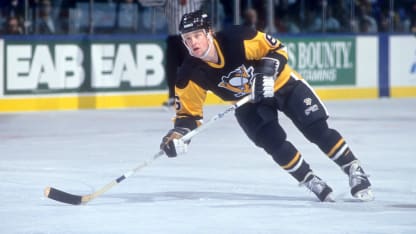
"It feels great because I'm familiar with a lot of people in the organization, and obviously it's a first-class organization," said Young, a Massachusetts native who played for BU with Mike Sullivan and Clark Donatelli and also skated alongside Bill Guerin in the NHL.
"When you bring up the top NHL teams, Pittsburgh comes to mind as No. 1. Obviously because of the last two Cups, but also the way that they've run the organization. If you ask around to players around the league, coaches, scouts, it's always Pittsburgh is doing it right. So to me, it's just a great feeling to be back with the Penguins."
Young ended up playing a distinguished 16-plus year NHL career that included another championship with Colorado in 1996. He skated for six total franchises - Pittsburgh, Quebec/Colorado, Hartford, Anaheim, St. Louis and Dallas - while amassing regular-season totals of 1,181 games, 342 goals, 415 assists and 757 points.
That goal total ranks 10th all-time among American-born players, which helped him get inducted into the U.S. Hockey Hall of Fame this year. Young also tacked on 87 points (44G-43A) in 141 career NHL playoff contests.
Talking with him, he credited his short time in Pittsburgh as the biggest reason for achieving such longevity. Young was traded to the Penguins from the Whalers midway through that 1990-91 season - just his third full season in the league - and quickly learned that he had a lot to learn.
"I went into Pittsburgh as a kid, or an immature NHL player," Young said. "And I felt like I left there and learned how to be a pro."
Young points to teammate Paul Coffey and his work ethic as the biggest revelation for him.
"We'd play a six-game series in the second round of the playoffs, and he's in riding the bike and doing situps and pushups after a game after he just played 30 minutes," Young said. "That really was an eye-opener to me. I said to myself, 'I thought I was working hard, but I'm not working hard enough.'"
Moving forward, Young said he became a true professional, and that's an experience he can use to help the young players he'll be working with in Pittsburgh.
"It's a maturity thing, and I think that's the advice you always want to give to young players," Young said. "Watch the successful players and their work habits and their preparation and everything about them and you can learn. Paul Coffey had just won four Stanley Cups in Edmonton, so that was a pretty good guy to watch and learn from (laughs). There's a reason. He knew what it took. It totally changed me and I felt like I was a true professional after leaving Pittsburgh."
There's plenty of other experiences Young can draw on as well, both in his playing career and his post-playing career.
"As former players, we just want to help players get better," Young said. "We want to help players maximize their potential in the NHL. Hopefully it's at the NHL level, and there's so many different experiences that all of us players have. There's not many situations I think a player could throw at us and we haven't already been through it."


